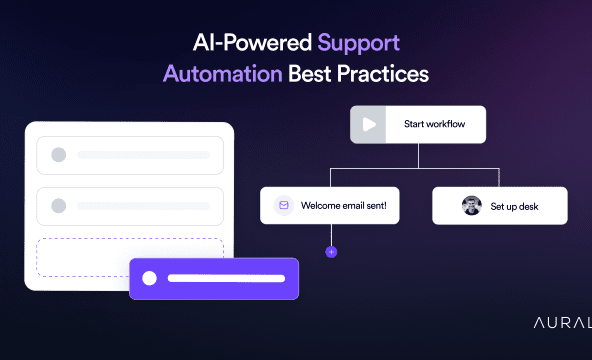AI in service automation
AI in service automation is reshaping how businesses deliver support and manage operations, offering unparalleled efficiency, speed, and personalization. By leveraging artificial intelligence, companies can automate repetitive tasks, streamline workflows, and ensure seamless customer interactions, all while reducing operational costs.
One of the primary benefits of AI in service automation is task efficiency. AI-powered tools like chatbots and virtual assistants can handle routine inquiries, process transactions, and schedule appointments without human intervention. This frees up valuable time for service teams to focus on complex or high-priority issues that require critical thinking or a personal touch.
AI also enhances the customer experience through intelligent automation. By analyzing customer data and interaction history, AI can provide real-time, context-aware support. For instance, it can offer personalized product recommendations, resolve issues proactively, or guide customers through intricate processes, ensuring a smoother and more satisfying experience.
In service operations, AI drives consistency and accuracy. Automated workflows reduce human error and ensure that tasks are completed according to predefined protocols. For example, ticket routing systems powered by AI can categorize and assign customer queries to the appropriate teams based on keywords or urgency, reducing response times and improving resolution rates.
AI in service automation is particularly valuable for scaling operations. Businesses can handle large volumes of customer inquiries simultaneously across multiple channels, such as email, chat, and social media, without compromising service quality. This scalability is especially beneficial during peak times or for growing companies with increasing customer demands.
Another critical application is predictive analytics. AI can analyze trends, monitor customer behavior, and forecast service needs, enabling businesses to address potential issues before they arise. For example, it can identify common complaints and recommend process improvements, reducing future support requests and enhancing customer satisfaction.
Furthermore, AI ensures 24/7 availability, providing round-the-clock support to customers. This continuous service capability builds trust and reliability, as customers know they can get assistance anytime they need it.
Incorporating AI into service automation also strengthens decision-making. By providing actionable insights and detailed analytics, AI helps businesses understand performance metrics, customer satisfaction levels, and operational bottlenecks, allowing for data-driven improvements.
In summary, AI in service automation revolutionizes traditional workflows by automating tasks, improving efficiency, and delivering personalized, scalable, and round-the-clock solutions. It empowers businesses to meet modern customer expectations while optimizing resources and driving innovation.

- Articles
-
 Amy
Amy
- 7 min read
